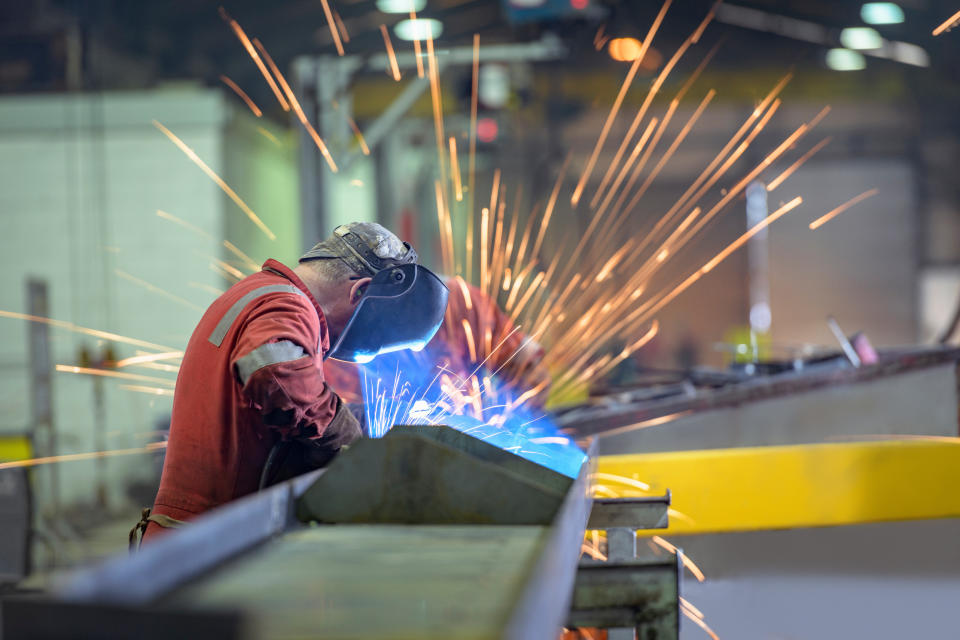UK manufacturing shrinks for seventh month ahead of general election

The UK manufacturing sector shrunk for the seventh straight month in November as the country gears up for the upcoming general election.
Though the 48.9 figure came in ahead of analyst expectations, it still signalled that the sector, mired by Brexit and general election uncertainty, contracted at a faster pace than in October.
Employment in the sector fell for the eighth straight month, with the pace of job losses seen last month the steepest in more than seven years.
Output and new orders fell in the month, as companies scaled back production.
READ MORE: Labour vows to slash rail fares by a third
“A heavy sense of inevitability hung around the sector in November as it continued to suffer the effects of a lethal cocktail of Brexit uncertainty, slowing global growth and an impending general election,” said Duncan Brock, group director at the Chartered Institute of Procurement and Supply, on Monday.
“New orders fell for the seventh month in a row during November, reflecting tougher conditions in both domestic and overseas markets,” IHS Markit said.
The delay to Brexit had “a noticeable impact” on stock holdings and purchasing activity during November, it said.
While many companies had stockpiled ahead of the 31 October Brexit deadline, the delay to the UK’s departure from the EU meant that they could meet most orders with existing inventories, which shrunk at their fastest pace in more than two years.
“November saw UK manufacturers squeezed between a rock and hard place, as the uncertainty created by a further delay to Brexit was accompanied by growing paralysis ahead of the forthcoming general election,” said Rob Dobson, director at IHS Markit, on Monday.
READ MORE: What the 2019 general election could mean for the pound
While intermediate or semi-finished goods producers saw a decline in new business and staffing, output and new orders climbed in the consumer goods sector.
This pointed to a “two-speed economy”, Dobson said, contrasting the steep drop in machinery and equipment orders with the rising demand for consumer goods, which he said suggested “households continue to provide some support to the economy.”
“Supply chain managers cited weakened domestic demand and one of the biggest falls in export orders for seven years as companies unravelled their pre-Brexit stocks and resulting in one of steepest reductions in purchasing since 2013,” said Brock.

 Yahoo Finance
Yahoo Finance 
